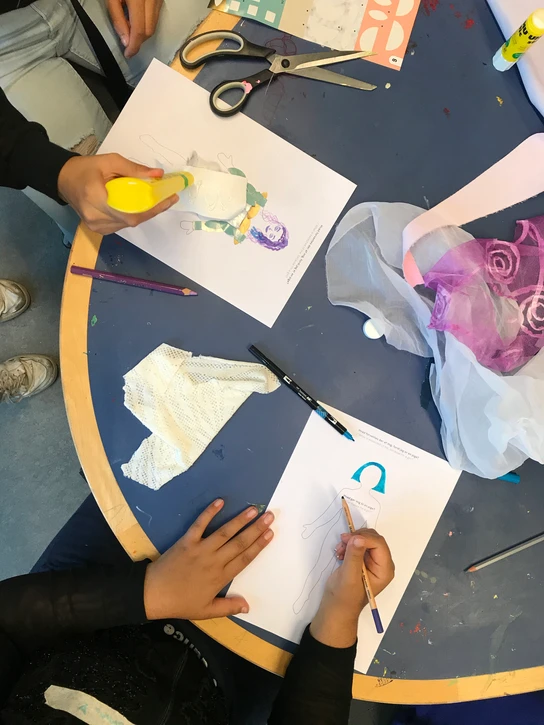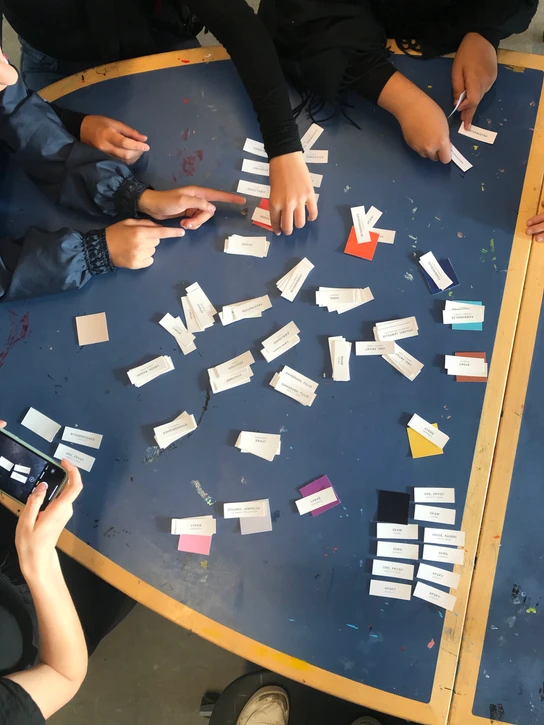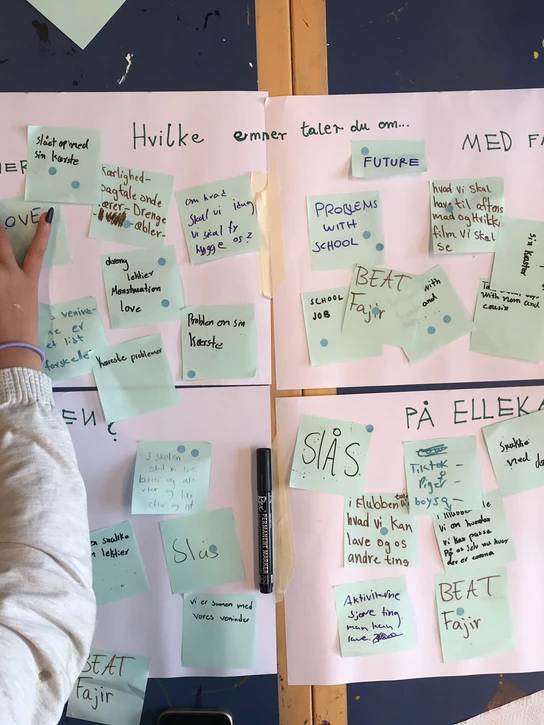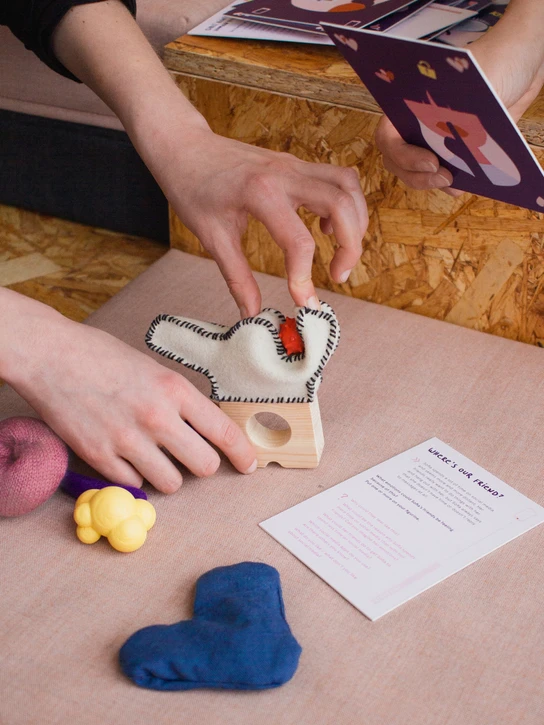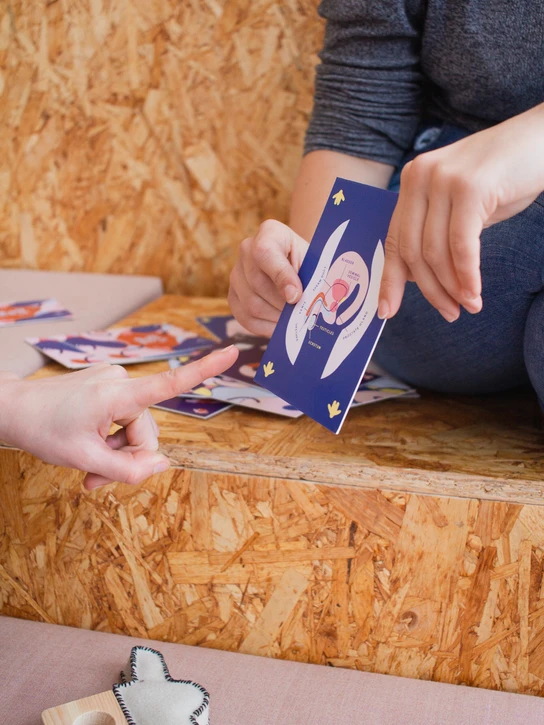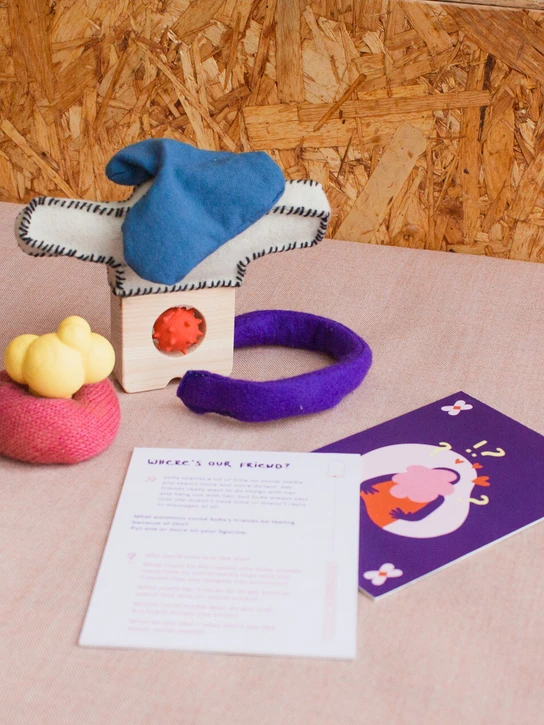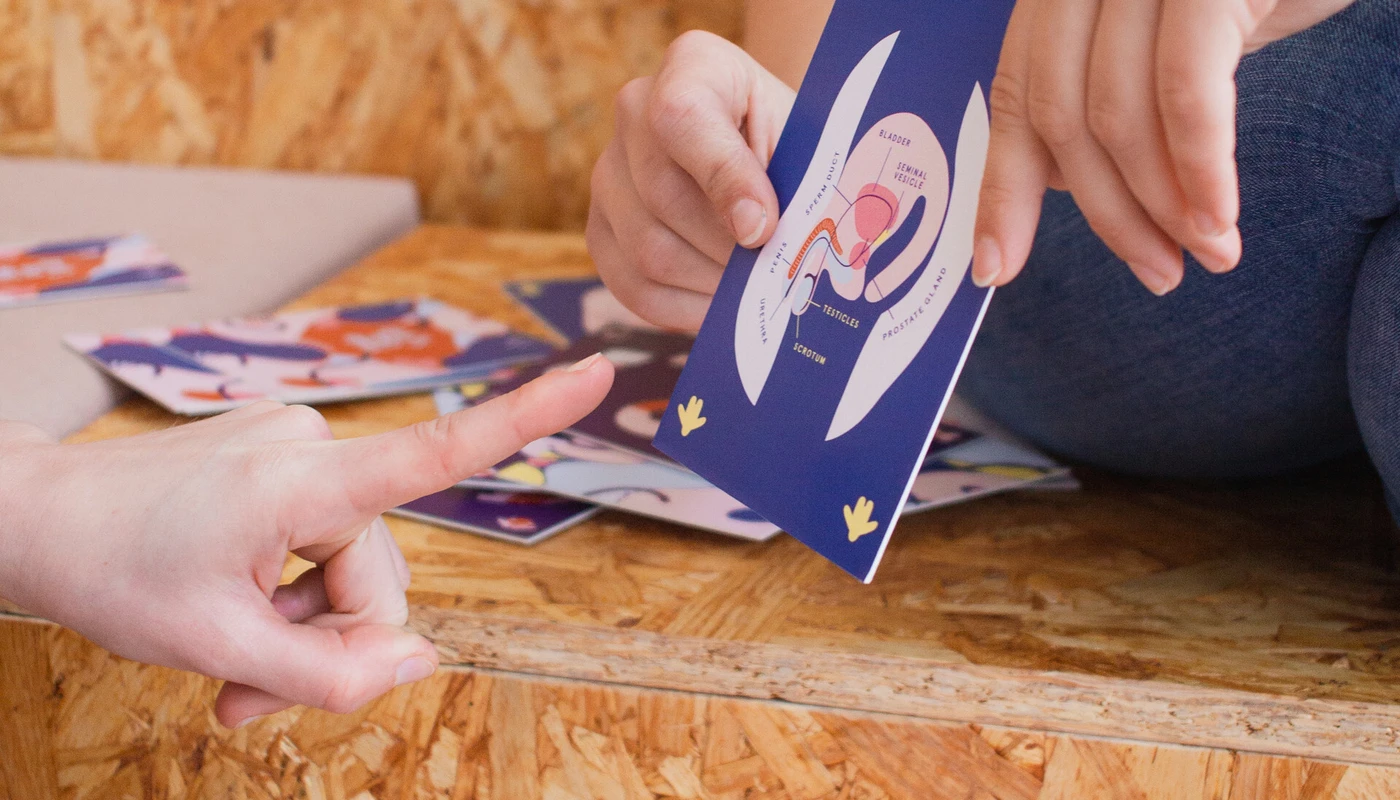
Girl Talk by Larissa Berghofer Marina Almanstötter and Ada Krenz
- Students
-
- Education
- Master
- Subject area
- Textile Design
Communication Design
Industrial Design - Focus area
- Design for People
- Year
- 2020
- Education project type
- Course
- Collaboration partners
- UngiÅrhus
About the project
Girl Talk is a tool kit for pedagogues and girls to discuss sensitive topics in a safe setting. It can be used to facilitate a scheduled talk or to open up spontaneously if needed. We included a gender-less, simplified figurine and different emotional objects that can be used to describe what and where you feel something. The heart of the kit is the “Storytime” Cards, which include little stories as well as follow-up questions that can kick start conversations. We also made “Good to Know” cards, that should inform, and “Let’s Do This” cards with warm-up activities.
The idea of the tool kit came to us because we focused on the girls in a youth club in Aarhus and the lack of time and resources of the pedagogues to work with those girls. In our research, we also found out that sexual education was not something they were fond of, and the girls would just look for information on the internet when they needed it.
Our process was shaped a lot by the meetings we had with the girls and the pedagogues. Through co-design methods, we not only tried to build up trust but also to design the properties of the emotional objects. One method that worked well was collaging with the girls. We asked them to fill in an outline of a body with fabrics, paper scraps, or just by coloring, to show us what a girl is in their opinion and what it should be from the point of view of society. Semi-structured interviews with the pedagogues helped to fill in the blanks and get an understanding of the background of the girls and the life in the youth club.
We learned a lot about structuring the workshops and methods to make it interesting for teenage girls, but also how co-designing can also be used to build trust and gain confidence. Which were mostly missing in the relationships between the girls and the pedagogues. The tool kit would be a thing to help build those relationships on a stronger foundation so that in the end, the girls would also actively ask for help or talks if needed.
In our opinion, this design proposal could be a first step in the right direction to schedule time to discuss sensitive topics and gain trust from the girls and the pedagogues. Sexual health and gender-related topics are often neglected when it comes to educating girls, so the pedagogues could step in to ensure that those girls can be confident and self-determined when it comes to their bodies, needs, and rights.
